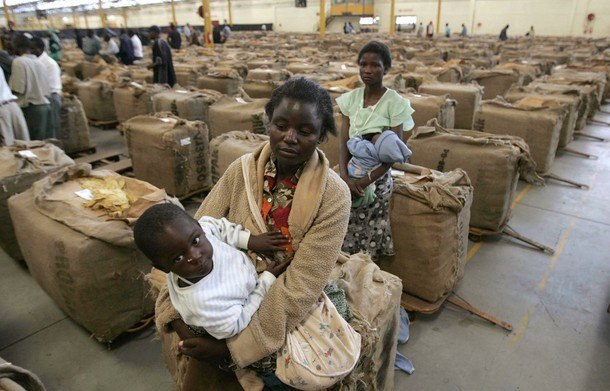
The successful annual Africa regional conference of the International Tobacco Growers’ Association held in Zimbabwe in June inevitably had the local pundits and organisations such as the Network for Accountability of Tobacco Transnationals (Natt) sounding off in the media.
Sunday Opinion with Francois van der Merwe
As usual, the comments revealed a woefully inadequate understanding of the issues surrounding tobacco farmers and a shrill and dictatorial — if not patronising — dismissal of the rights of tobacco farmers.
Irvine Mugwagwa writing in a letter to The Standard July 6 2014 made the outlandish claims that tobacco growers in the country have contributed to the lower grain harvest this year and that the government of Zimbabwe is complicit in this by “encouraging more farmers to venture into tobacco farming”.
Mugwagwa needs to check his facts. For example, in the 2009/10 season a large-scale input programme targeting smallholder farmers, assisted in supporting a 20% increase in the area planted under maize.
According to the report of the Food and Agriculture Organisation (FAO) / World Food Programme (WFP) Crop and Food Security Assessment Mission to Zimbabwe in 2010, this was “the largest area planted with maize over the last 30 years (1980-2010)”. And this year, a total of 1,6 million households benefitted from the Presidential Agriculture Inputs scheme.
He should not need reminding that the Zimbabwe Agenda for Sustainable Socio-Economic Transformation (Zim Asset) for the period 2013-2018 specifically lists as one of the four strategic clusters “food security and nutrition”. The government is not ignoring the issue.
Just for the record, it may not mean much to Mugwagwa, but Zimbabwean tobacco farmers this season sold 204 million kilogrammes of tobacco, earning US$647 million.
- Chamisa under fire over US$120K donation
- Mavhunga puts DeMbare into Chibuku quarterfinals
- Pension funds bet on Cabora Bassa oilfields
- Councils defy govt fire tender directive
Keep Reading
And this was not at the expense of food crops.
In fact, this year, according to World Bank estimates, farmers are expecting a “bumper maize harvest” of some 1,2 million tonnes. More than 1,4 million hectares were planted with maize, up by 18% from last year.
By comparison, according to the Tobacco Industry and Marketing Board, a total of 103 163 growers planted about 97 982 ha of tobacco this year. Overall, the World Bank stated that agriculture would recover by 7,3% this year.
The claims made by Natt are misleading and ill-informed to say the least.
It openly admits that it campaigns to ensure tobacco growers are not given a voice at the sixth session of the Framework Convention on Tobacco Control (FCTC) Conference of Parties (COP6) in Moscow in October. This is a blatant abuse of the founding principles of the United Nations.
Tobacco farmers and workers — and there are more than 30 million across the globe — should not be excluded from discussions that will directly impact on their livelihoods.
As permanent secretary in the Ministry of Agriculture, Mechanisation and Irrigation Ringson Chitsiko told representatives of tobacco growers from the Africa region, the government of Zimbabwe firmly believes that the “World Health Organisation and FCTC is operating outside its bounds by attempting to regulate agriculture and trade policies” without consulting those affected.
He called on all tobacco-growing countries to encourage the “full participation” of all relevant government departments, the tobacco industry and civil society on all matters relating to FCTC and COP6.
Francois van der Merwe is a tobacco farmer and President of the International Tobacco Growers’ Association.











